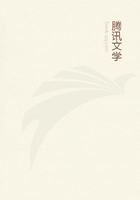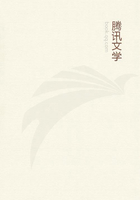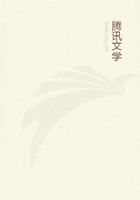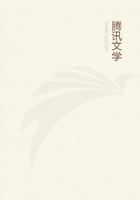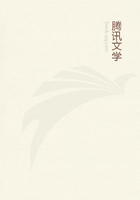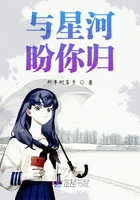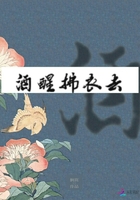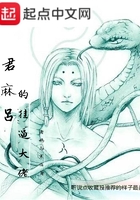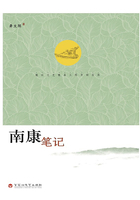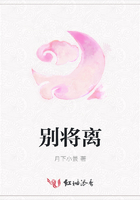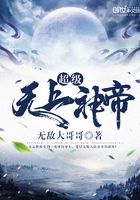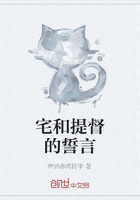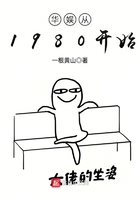Ever since I have been old enough to think for myself, I have entertained the idea that, notwithstanding the cruel wrongs inflicted upon us, the black man got nearly as much out of slavery as the white man did. The hurtful influences of the institution were not by any means confined to the Negro. This was fully illustrated by the life upon our own plantation. The whole machinery of slavery was so constructed as to cause labour, as a rule, to be looked upon as a badge of degradation, of inferiority. Hence labour was something that both races on the slave plantation sought to escape. The slave system on our place, in a large measure, took the spirit of self-reliance and self-help out of the white people. My old master had many boys and girls, but not one, so far as I know, ever mastered a single trade or special line of productive industry. The girls were not taught to cook, sew, or to take care of the house. All of this was left to the slaves. The slaves, of course, had little personal interest in the life of the plantation, and their ignorance prevented them from learning how to do things in the most improved and thorough manner. As a result of the system, fences were out of repair, gates were hanging half off the hinges, doors creaked, window-panes were out, plastering had fallen but was not replaced, weeds grew in the yard. As a rule, there was food for whites and blacks, but inside the house, and on the dining-room table, there was wanting that delicacy and refinement of touch and finish which can make a home the most convenient, comfortable, and attractive place in the world.
Withal there was a waste of food and other materials which was sad. When freedom came, the slaves were almost as well fitted to begin life anew as the master, except in the matter of book-learning and ownership of property. The slave owner and his sons had mastered no special industry. They unconsciously had imbibed the feeling that manual labour was not the proper thing for them. On the other hand, the slaves, in many cases, had mastered some handicraft, and none were ashamed, and few unwilling, to labour.
Finally the war closed, and the day of freedom came. It was a momentous and eventful day to all upon our plantation. We had been expecting it. Freedom was in the air, and had been for months. Deserting soldiers returning to their homes were to be seen every day. Others who had been discharged, or whose regiments had been paroled, were constantly passing near our place. The "grape-vine telegraph" was kept busy night and day.
The news and mutterings of great events were swiftly carried from one plantation to another. In the fear of "Yankee" invasions, the silverware and other valuables were taken from the "big house," buried in the woods, and guarded by trusted slaves. Woe be to any one who would have attempted to disturb the buried treasure. The slaves would give the Yankee soldiers food, drink, clothing--anything but that which had been specifically intrusted to their care and honour. As the great day drew nearer, there was more singing in the slave quarters than usual. It was bolder, had more ring, and lasted later into the night. Most of the verses of the plantation songs had some reference to freedom. True, they had sung those same verses before, but they had been careful to explain that the "freedom" in these songs referred to the next world, and had no connection with life in this world. Now they gradually threw off the mask, and were not afraid to let it be known that the "freedom" in their songs meant freedom of the body in this world. The night before the eventful day, word was sent to the slave quarters to the effect that something unusual was going to take place at the "big house" the next morning. There was little, if any, sleep that night. All as excitement and expectancy. Early the next morning word was sent to all the slaves, old and young, to gather at the house. In company with my mother, brother, and sister, and a large number of other slaves, I went to the master's house. All of our master's family were either standing or seated on the veranda of the house, where they could see what was to take place and hear what was said. There was a feeling of deep interest, or perhaps sadness, on their faces, but not bitterness. As I now recall the impression they made upon me, they did not at the moment seem to be sad because of the loss of property, but rather because of parting with those whom they had reared and who were in many ways very close to them. The most distinct thing that I now recall in connection with the scene was that some man who seemed to be a stranger (a United States officer, I presume) made a little speech and then read a rather long paper--the Emancipation Proclamation, I think.
After the reading we were told that we were all free, and could go when and where we pleased. My mother, who was standing by my side, leaned over and kissed her children, while tears of joy ran down her cheeks. She explained to us what it all meant, that this was the day for which she had been so long praying, but fearing that she would never live to see.
For some minutes there was great rejoicing, and thanksgiving, and wild scenes of ecstasy. But there was no feeling of bitterness.
In fact, there was pity among the slaves for our former owners.
The wild rejoicing on the part of the emancipated coloured people lasted but for a brief period, for I noticed that by the time they returned to their cabins there was a change in their feelings. The great responsibility of being free, of having charge of themselves, of having to think and plan for themselves and their children, seemed to take possession of them. It was very much like suddenly turning a youth of ten or twelve years out into the world to provide for himself. In a few hours the great questions with which the Anglo-Saxon race had been grappling for centuries had been thrown upon these people to be solved. These were the questions of a home, a living, the rearing of children, education, citizenship, and the establishment and support of churches. Was it any wonder that within a few hours the wild rejoicing ceased and a feeling of deep gloom seemed to pervade the slave quarters? To some it seemed that, now that they were in actual possession of it, freedom was a more serious thing than they had expected to find it. Some of the slaves were seventy or eighty years old; their best days were gone. They had no strength with which to earn a living in a strange place and among strange people, even if they had been sure where to find a new place of abode. To this class the problem seemed especially hard. Besides, deep down in their hearts there was a strange and peculiar attachment to "old Marster" and "old Missus," and to their children, which they found it hard to think of breaking off. With these they had spent in some cases nearly a half-century, and it was no light thing to think of parting.
Gradually, one by one, stealthily at first, the older slaves began to wander from the slave quarters back to the "big house" to have a whispered conversation with their former owners as to the future.

